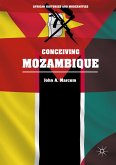This book is a philosopher's view into the chaotic postcolony of Zimbabwe, delving into Robert Mugabe's Will to Power. The Will to Power refers to a spirited desire for power and overwhelming fear of powerlessness that Mugabe artfully concealed behind performances of invincibility. Nietzsche's philosophical concept of the Will to Power is interpreted and expanded in this book to explain how a tyrant is produced and enabled, and how he performs his tyranny. Achille Mbembe's novel concept of the African postcolony is mobilised to locate Zimbabwe under Mugabe as a domain of the madness of power. The book describes Mugabe's development from a vulnerable youth who was intoxicated with delusions of divine commission to a monstrous tyrant of the postcolony who mistook himself for a political messiah. This account exposes how post-political euphoria about independence from colonialism and the heroism of one leader can easily lead to the degeneration of leadership. However, this book is as much about bad leadership as it is about bad followership. Away from Eurocentric stereotypes where tyranny is isolated to African despots, this book shows how Mugabe is part of an extended family of tyrants of the world. He fought settler colonialism but failed to avoid being infected by it, and eventually became a native coloniser to his own people. The book concludes that Zimbabwe faces not only a simple struggle for democracy and human rights, but a Himalayan struggle for liberation from genocidal native colonialism that endures even after Robert Mugabe's dethronement and death.
Dieser Download kann aus rechtlichen Gründen nur mit Rechnungsadresse in A, B, BG, CY, CZ, D, DK, EW, E, FIN, F, GR, HR, H, IRL, I, LT, L, LR, M, NL, PL, P, R, S, SLO, SK ausgeliefert werden.









